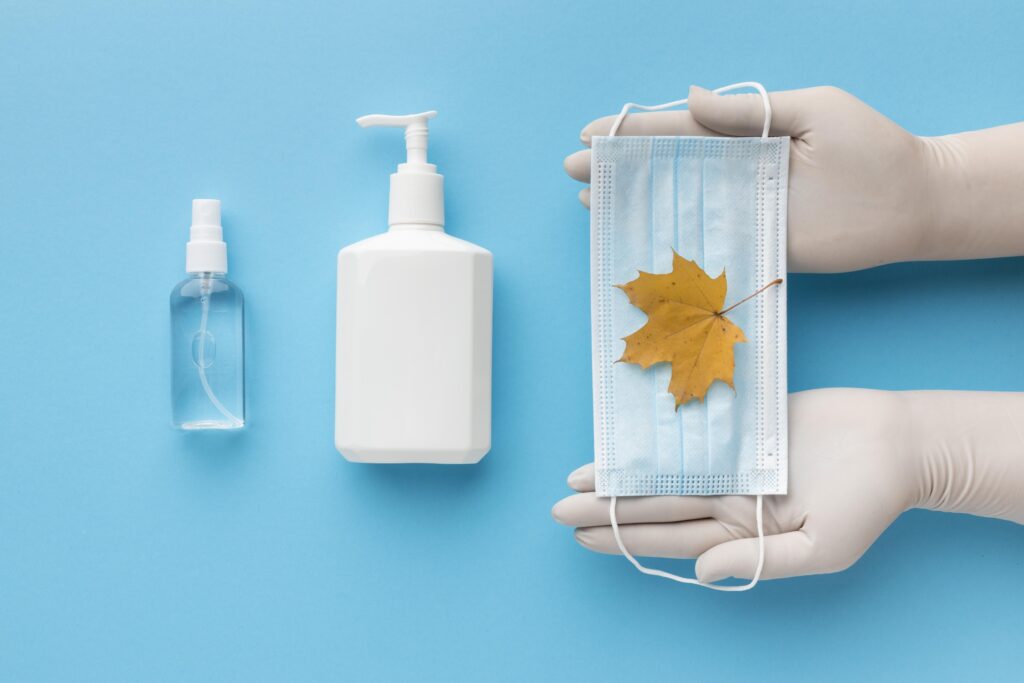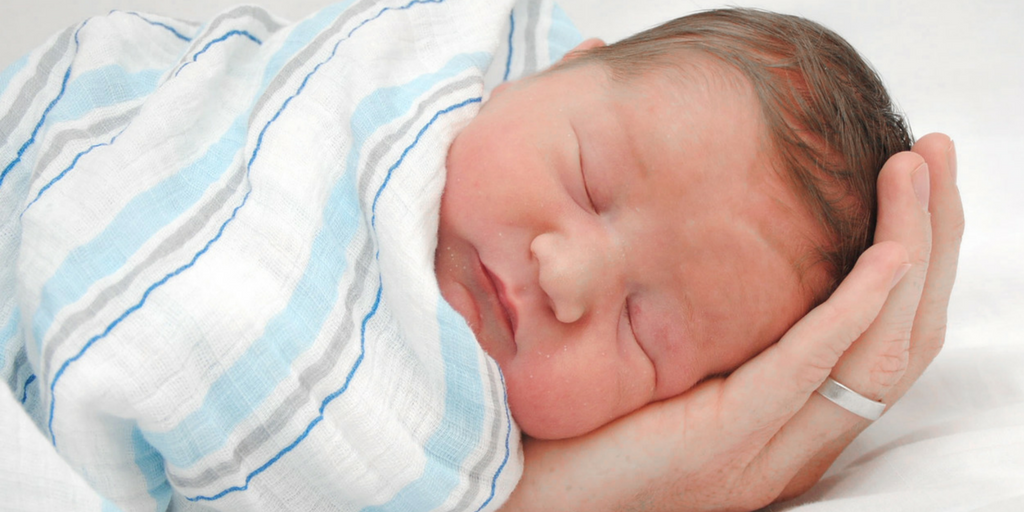
Congratulations on bringing a beautiful new life into the world! Those early newborn days are filled with wonder, snuggles, and of course, a whirlwind of emotions. As a new mom, protecting your little one’s health is a top priority. Newborns have immature immune systems, making them more susceptible to germs that can cause illness. But don’t worry, there are simple steps you can take to create a safe and healthy environment for your baby to thrive.
1. Handwashing is Your Superhero Move:
This might sound obvious, but frequent handwashing is the single most effective way to prevent the spread of germs. Wash your hands thoroughly with warm water and soap for at least 20 seconds before:
- Picking up your baby
- Changing diapers
- Preparing bottles or feeding your baby
- Having any close contact with your baby, especially after blowing your nose, coughing, or using the restroom
Encourage anyone who will be holding your baby to follow the same handwashing routine. Consider keeping a cute handwashing sign in your bathroom as a gentle reminder for visitors.
2. Limit Visitors and Germs:
We all love showing off our adorable newborns, but resist the urge to have a constant stream of visitors, especially in the first few weeks. Everyone wants to cuddle the newest member of the family, but unfortunately, well-meaning friends and relatives can unknowingly carry germs.
- Be Selective: It’s perfectly okay to limit visitors to close family and friends who are healthy.
- Set Boundaries: Let visitors know you’re prioritizing your baby’s health and politely request they reschedule if they’re feeling under the weather.
- The “Clean Clothes Club”: Consider having a basket of clean guest towels or t-shirts by the door for visitors to slip on before holding your baby.

3. The Magic of Breastfeeding:
Breast milk is liquid gold for your newborn. It’s packed with antibodies that help boost your baby’s immune system and fight off infections. If you’re able to breastfeed, continue for as long as you and your baby are comfortable. Breastfeeding also promotes a healthy weight and reduces the risk of allergies and other illnesses.
4. Cleanliness is Key (But Not Sterile!):
While keeping your baby’s environment clean is important, there’s no need to go overboard with sterilization. Here’s a balanced approach:
- Wash Bottles and Pacifiers Regularly: Run them through the dishwasher (sanitize setting) or handwash them in hot, soapy water with a bottle brush.
- Clean Surfaces Frequently: Wipe down surfaces your baby frequently touches, like changing tables and highchair trays, with a disinfectant wipe or all-purpose cleaner.
- Skip the Constant Sterilization: There’s no need to constantly sterilize bottles, pacifiers, and toys. Hot soapy water is usually sufficient. This allows your baby to develop a healthy tolerance to some germs, which can actually strengthen their immune system in the long run.
5. Tummy Time for a Healthy Start:
Tummy time is crucial for your baby’s development. It strengthens their neck and back muscles, which helps them roll over, sit up, and eventually crawl. Place your baby on their tummy for short supervised sessions throughout the day, starting from day one. Even a few minutes at a time is beneficial. Here are some tummy time tips:
- Make it Fun: Place your baby on a colorful play mat with engaging toys within reach to encourage them to lift their head.
- Start Slow: Begin with short sessions (a few minutes) and gradually increase the duration as your baby gets stronger.
- Supervise Always: Never leave your baby unattended during tummy time.
6. A World of Wonder: Your Baby’s Development:
The first few months of your baby’s life are a whirlwind of exciting milestones. Here’s a quick guide to some developmental markers to look out for:
- Newborn Milestones (0-1 month): Your baby will start to focus on faces, respond to your voice, and root for feeding.
- 2 Month Old Milestones: Expect to see better head control, cooing sounds, and reaching for objects.
- 3 Month Old Milestones: Your baby will likely be rolling over from tummy to back, giggling, and grabbing toys.
- 4 Month Old Milestones: They’ll be babbling more, rolling over in both directions, and transferring toys from hand to hand.
- 5 Month Old Milestones: Look for them to recognize familiar faces, bring objects to their mouth, and support their weight on their legs when held upright.
7. A Well-Rested Baby is a Happy Baby (and a Healthier Baby!)
Newborn sleep can be unpredictable, but getting enough rest is essential for your baby’s development and immune system function. Here are some tips to promote healthy sleep habits:
- Establish a Routine: Create a consistent bedtime routine that includes a warm bath, a calming massage, and quiet time.
- Swaddle Magic: Swaddling can help newborns feel secure and sleep more soundly.
- Night Feedings: Be prepared for frequent night feedings in the early weeks. This is normal and will gradually decrease as your baby gets older.
- Safe Sleep Practices: Always place your baby on their back to sleep on a firm mattress in a crib with no loose blankets or pillows. This is the safest way to prevent Sudden Infant Death Syndrome (SIDS).
8. Know When to Call the Doctor:
While some minor illnesses are to be expected, it’s important to know when to seek medical attention for your baby. Here are some red flags that warrant a call to your pediatrician:
- Fever: A rectal temperature of 100.4°F (38°C) or higher in a newborn requires a call to the doctor.
- Persistent Fussiness: If your baby is crying inconsolably for long periods, especially if they’re not easily soothed, it’s best to get them checked.
- Vomiting or Diarrhea: Excessive vomiting or diarrhea can lead to dehydration, so consult your doctor if your baby experiences these symptoms.
- Poor Feeding: If your baby is refusing to breastfeed or bottle-feed, or seems lethargic during feedings, contact your pediatrician.
Bonus Tip: The Wonderful World of Baby Products
With so many baby products on the market, it’s easy to feel overwhelmed. Here are some essentials to consider:
- Baby Box: Many companies offer baby boxes filled with essential newborn items like diapers, wipes, onesies, and washcloths. These can be a great way to get started.
- Soft Washcloths and Baby Shampoo: Choose gentle, fragrance-free products for bath time.
- Cozy Blankets: Stock up on a few soft blankets for swaddling, cuddling, and keeping your baby warm.
- Infant Carrier: A baby carrier allows you to keep your baby close while getting things done.
Remember, you’ve got this!
Becoming a new mom is an incredible journey filled with both challenges and immense joy. By following these simple tips, you can create a safe and healthy environment for your precious newborn to thrive. As your baby grows and develops, their immune system will naturally become stronger. But don’t hesitate to reach out to your pediatrician if you have any questions or concerns.
What are some of your favorite newborn essentials or tips to keep your baby healthy? Share them in the comments below!

